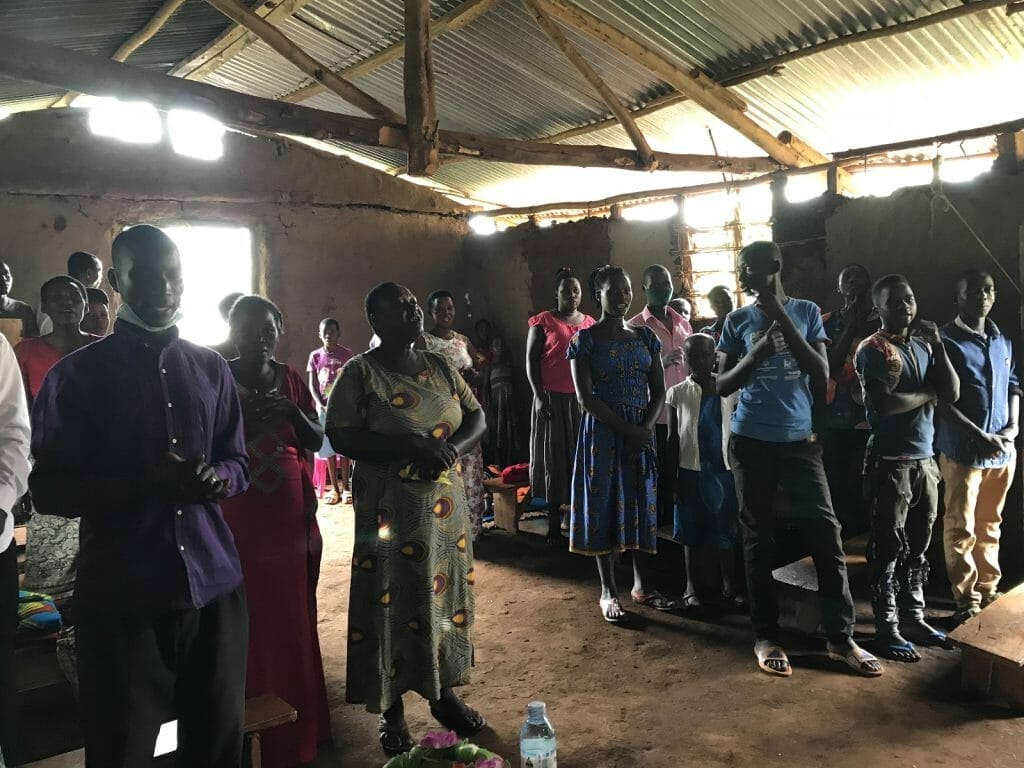One of the things that always makes me grin when I read the gospels is how it was the irreligious people who felt comfortable seeking out and being around Jesus, and equally how Jesus enjoyed spending time with them. Doesn’t mean he didn’t enjoy being with religious people, but his dinner conversations with them were usually more cantankerous or had a not very well-hidden “find a fault with Jesus” agenda.
On the other hand, Zacchaeus threw a party with his friends and Jesus said it was a house filled with great joy, and Matthew’s first thing after Jesus said “Follow me” was to have a large crowd at his house eating and drinking and spending time with Jesus.
At these and other times, the Pharisees and those “more religious” showed they wore myopic blinders—how can something unholy associate with something holy? Jesus countered that, “It is not the healthy who need a doctor, but the sick,”—how can the holy not seek out the unholy?
The pastor in the western Uganda village expected we’d be training maybe twenty people. “Well,” Pastor Johnson said, “the police know two white men are at the church. They won’t let us have many more than that. We will see.” We ended up with over a hundred on day two. The police knew but turned their backs. People from seventeen other churches in the region wanted to come, but the pastor couldn’t allow it.

And we shared stories about Jesus with each other. On the last day, we gave testimony to what God allowed the believers to see happen as they shared those same stories in Paachwa each day after we were done training together…
- A seven-year-old boy shared the story of the demon possessed man in Mark 5 to a middle age man. At first the man listened to be polite, but then started asking the boy serious questions about the story. “Why would Jesus help this man?” The boy said, “I think it’s because Jesus loved him.” “If Jesus loved that man who did all those bad things, do you think he loves me?” The man wants the boy to tell him more.
- A Muslim woman heard the story of Jesus healing a man’s deformed hand (Mark 3) and the paralytic lowered through the roof (Mark 2). “Where are you hearing these stories? We have heard noise coming from the church building the past two days. Is this what you’re talking about? Tell me more.”
- A woman heard the story of the demon possessed man and talked to her friend about who Jesus spent time with. “You mean Jesus wanted to spend time with people who were sinners?” She accepted Christ that afternoon.
- A mother said she shared the stories we learned with her children. That gave her the courage to go share with her neighbor. The neighbor didn’t understand the stories, so the mother tried again and got flustered. So her children told the stories to the neighbor. “Ooohhh! That makes sense!” She wants to hear more and said she would come to church with this family if the children will help her understand what is talked about.
At the end of our time, one person said to the pastor, “I have learned this week that I need to stop despising somebody just because of how they look or act. Jesus didn’t despise the demon possessed man or the paralyzed man or the crippled man. People despised them and pushed them away, and Jesus did not and then those people told others about Jesus. I need to change.”
(follow up) Four months later, this group had created accountability groups to learn more stories and go to the seventeen churches that could not come earlier. They had trained thirteen of those churches.



Leave a Reply